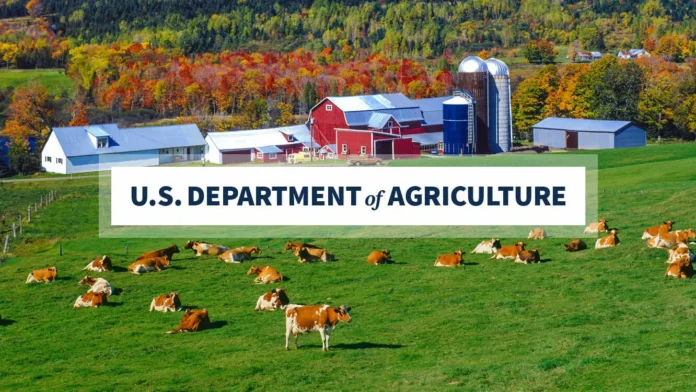On May 30th, 2024, the United States Department of Agriculture (USDA) made a significant announcement that is sure to have a positive impact on the country’s food system. In a formal agreement, the USDA has joined hands with the U.S. Environmental Protection Agency (EPA) and the U.S. Food and Drug Administration (FDA) to renew their Federal Interagency Collaboration to Reduce Food Loss and Waste (FIFLAW). This collaboration is a crucial step towards addressing the pressing issue of food loss and waste in our country, and it is heartening to see the U.S. Agency for International Development (USAID) joining the effort to reduce food loss and waste globally.
According to the USDA, nearly 30 to 40 percent of food produced in the United States goes to waste every year. This translates to approximately 133 billion pounds, which amounts to a staggering $161 billion, being wasted. This wastage not only has a significant economic impact but also has severe environmental implications. Food waste in landfills contributes to the production of methane gas, a potent greenhouse gas that contributes to climate change.
Recognizing the urgency and magnitude of this issue, the USDA, EPA, FDA, and now USAID have come together to renew their commitment to reducing food loss and waste. This collaboration will utilize the strengths and expertise of each agency to create a cohesive and unified approach towards addressing this issue.
One of the primary focuses of this collaboration will be to align and coordinate the efforts of the agencies to prevent food loss and waste at every stage of the food supply chain, from production to consumption. This includes working closely with farmers, food manufacturers, and retailers to implement strategies that improve the shelf life of food products and prevent spoilage. The agencies will also collaborate to educate consumers on ways to reduce food waste in their households.
Furthermore, the collaboration will also seek to find innovative solutions to reduce food waste and repurpose it for other uses, such as animal feed or composting. This approach aligns with the USDA’s goal of creating a more sustainable food system that promotes resource conservation and minimizes environmental impact.
In addition to the domestic efforts, this collaboration also has an international aspect with the inclusion of USAID. This move is a testament to the United States’ commitment to addressing global issues and promoting sustainable practices worldwide. By partnering with other countries, the agencies will share their expertise and technologies to help reduce food loss and waste on a global scale.
The USDA, EPA, FDA, and USAID are optimistic that this collaboration will yield significant and tangible results in reducing food loss and waste in the United States and around the world. This renewed commitment comes at a crucial time when the country and the world are still reeling from the effects of the COVID-19 pandemic. The pandemic has highlighted the vulnerabilities of our food system and the need for more resilient and sustainable practices.
There is no doubt that this collaboration will have a positive impact on the environment, economy, and society as a whole. By reducing food loss and waste, we can conserve resources and reduce greenhouse gas emissions, while also providing more food for those in need. This effort also aligns with the United Nations’ Sustainable Development Goals, particularly Goal 12, which aims to ensure sustainable consumption and production patterns.
The signing of the formal agreement to renew the Federal Interagency Collaboration to Reduce Food Loss and Waste (FIFLAW) is a significant step towards creating a more sustainable and resilient food system. It is heartening to see various government agencies coming together to tackle a pressing issue that affects us all. This collaboration serves as an example of how we can achieve meaningful and positive change when we work together towards a common goal.
In conclusion, the USDA, EPA, FDA, and USAID have taken a crucial step towards reducing food loss and waste in the United States and globally. This collaboration is a testament to the agencies’ commitment to promoting sustainability and addressing pressing global issues. By working together, we can create a more sustainable food system that benefits the environment, economy, and society as a whole. Let us all play our part in reducing food loss and waste and contribute towards building a better future for generations to come.

